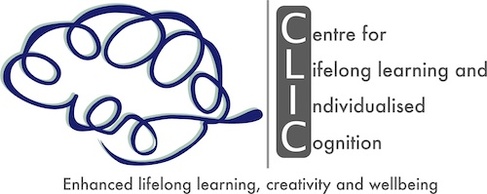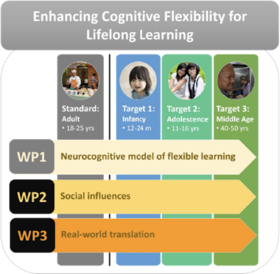Centre for Lifelong Learning and Individualised Cognition

As technology and globalization are changing the nature of labour markets and increasing the demand for high levels of skill, the need for individuals to be able to develop new skills during their working careers is becoming increasingly pressing. Singapore’s SkillsFuture programme promoted by the Ministries of Education, Manpower and Trade & Industry aptly recognises that societies need workers that have the capacity for flexible behaviour; that is, the ability to adapt to change, problem-solve in new situations based on previous experience and achieve in jobs that are likely to emerge over the next few decades. This individual capacity for cognitive flexibility is central to the modern digital age with its rapidly changing settings at home and work. As we recognise the need for flexible behaviour and transferable skills in our work force, we need our education systems to ensure that citizens are equipped with the cognitive flexibility they need to develop these skills for the future. Yet there is currently a gap in evidence-based training programmes that can effectively support and promote cognitive flexibility across the life course.
Here, we propose a work programme that aims to address this societal change by developing innovative research in the science of learning and translating it to educational and real-life applications across the life course. We will adopt an integrated interdisciplinary approach that marries cross-disciplinary expertise and methodologies. We will target three life periods (early years, adolescence, middle age; as compared to a control group of young adults) when flexible behaviour is critical for coping with highly changing circumstances. These are periods of neural change when the brain is undergoing processes of early maturation, re-structuring or resilience to decline, and therefore present important opportunities for intervention. A further important point with regard to development is that cognitive training at younger age (e.g. during infancy) is known to have a higher likelihood of generating far transfer effects (Wass et al, 2012). Cognitive flexibility is critical from early years when children prepare for school training, to later in life when adults face major changes to their health, work and social circumstances. Yet the neurodevelopment and maintenance of cognitive flexibility at these ages is poorly-understood, since previous research has mainly been conducted with young adults:
1. Early years (1-2 years old): initial socialization and transition from home-based to community-based learning (e.g., day-care and nurseries)
2. Adolescence (11-16 years old): transition to adulthood, preparation for independent living and further education
3. Middle age (40-50 years old): potential need for adaptation to changes in work environment, health and social circumstances.
To find out more please click here to visit the Cambridge CARES CLIC webpages.
Please allow social and marketing cookies to show embedded content.

